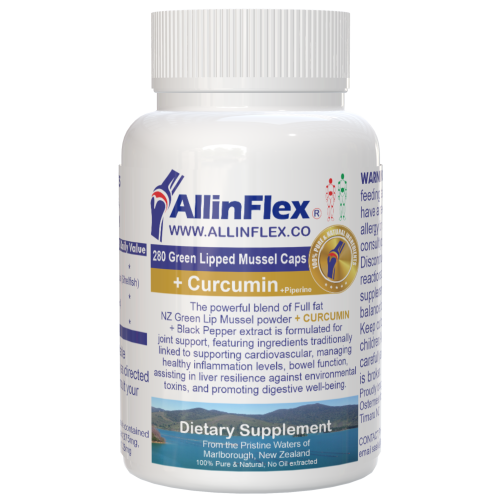Avoid these Top 10 foods to reduce Inflammation and Pain.
Saskia OstermeierInflammation is a natural defense mechanism our bodies use to fight off infections and heal injuries.
However, when inflammation becomes chronic, it can lead to various health issues, including persistent pain and discomfort.
One powerful way to manage inflammation is by adopting an anti-inflammatory diet. This involves avoiding certain foods that can trigger inflammation and opting for nourishing alternatives that promote overall wellness.
The foods to avoid to reduce inflammation with replacement suggestions:
Processed Foods: Highly processed foods often contain excessive amounts of added sugars, unhealthy fats, and artificial additives. These can contribute to inflammation over time.
Alternative: Prioritize whole, unprocessed foods like fresh fruits, vegetables, whole grains, lean proteins, and nuts.
Trans Fats: Trans fats, commonly found in fried and commercially baked foods, can increase levels of inflammation and negatively impact heart health.
Alternative: Incorporate healthy fats such as avocados, nuts, seeds, and olive oil into your meals for their anti-inflammatory benefits.
Sugary Snacks and Beverages: Foods and drinks loaded with refined sugars can lead to rapid spikes in blood sugar and inflammation. Avoid sugary snacks and sugary drinks.
Alternative: Hydrate with water, herbal teas, or naturally flavored water with slices of cucumber, lemon, or berries. Choose whole fruit as a satisfying, low-sugar snack.
Red Meat: Red meat, especially processed varieties, can contain compounds that promote inflammation. Limit your consumption of beef, pork, and lamb.
Alternative: Opt for lean sources of protein like skinless poultry, fatty fish (rich in omega-3s), beans, lentils, and tofu.
Processed Meats: Processed meats like sausages, hot dogs, and deli meats often contain preservatives and additives that can trigger inflammation.
Alternative: Choose nitrate-free deli meats or consider roasted turkey or chicken breast as alternatives.
Refined Carbohydrates: Refined grains like white bread, white rice, and sugary cereals can lead to rapid spikes in blood sugar and contribute to inflammation.
Alternative: Opt for whole grains such as whole wheat bread, brown rice, quinoa, barley, and whole oats for sustained energy and reduced inflammation.
Artificial Sweeteners: Some artificial sweeteners can disrupt gut health and potentially promote inflammation in some individuals.
Alternative: Use natural sweeteners like honey, maple syrup, or stevia in moderation if needed.
Highly Processed Snack Foods: Snack foods like chips, crackers, and cookies often contain unhealthy fats and additives that can exacerbate inflammation.
Alternative: Snack on a handful of mixed nuts, seeds, or a piece of whole fruit for a satisfying and anti-inflammatory option.
Excessive Alcohol: Alcohol consumption can contribute to inflammation, especially when consumed in excess.
Alternative: If you choose to drink, do so in moderation. Consider red wine in moderation for its potential heart-healthy and anti-inflammatory properties.
Excessive Omega-6 Fatty Acids: While omega-6 fatty acids are essential, an imbalance between omega-6 and omega-3 fatty acids can lead to inflammation. Avoid excessive consumption of vegetable oils high in omega-6, such as corn, soybean, and sunflower oils.Alternative: Focus on incorporating sources of omega-3 fatty acids, like fatty fish (salmon, mackerel, sardines), flaxseeds, chia seeds, and walnuts, to promote a healthier balance.
Suggested Replacements:
- Swap sugary cereal for a bowl of oatmeal topped with nuts and berries.
- Replace fried chicken with grilled or baked chicken seasoned with herbs and spices.
- Choose whole-grain pasta over white pasta and top it with a homemade tomato sauce loaded with vegetables.
- Opt for Greek yogurt with fresh fruit and a drizzle of honey instead of sugary yogurt cups.
- Enjoy hummus with veggie sticks as a snack instead of chips and dip.
- Try a homemade smoothie with leafy greens, fruits, and almond milk instead of sugary smoothie drinks.
- Replace store-bought salad dressings with olive oil, balsamic vinegar, and herbs for a healthier option.
- Choose whole-grain crackers with avocado spread instead of packaged crackers with unhealthy additives.
- Prepare homemade popcorn with a sprinkle of nutritional yeast instead of heavily buttered microwave popcorn.
- Trade soda for infused water with cucumber and mint for a refreshing and low-calorie drink.
By thoughtfully selecting your foods and focusing on a variety of colorful, nutrient-dense options, you can take control of inflammation and pain, leading to improved overall health and well-being.
As always, consult with a healthcare professional or registered dietitian before making significant dietary changes, especially if you have specific health conditions.

